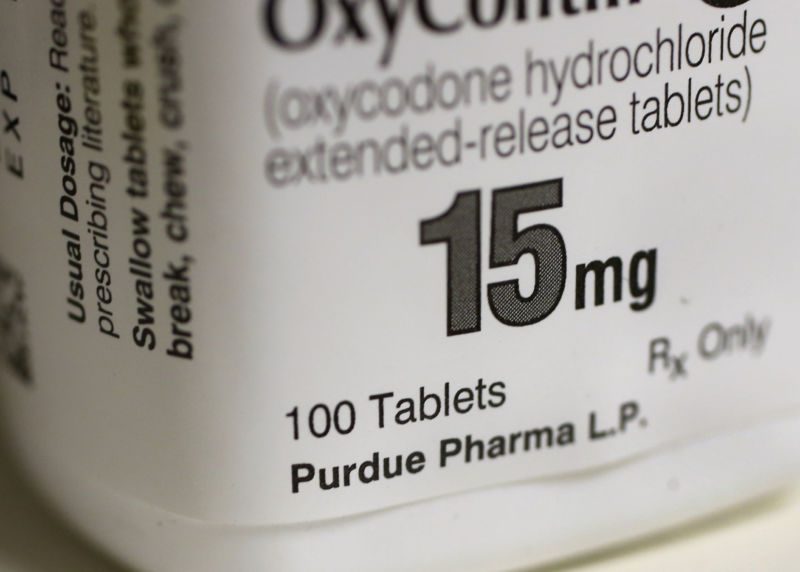
Purdue Pharma LP, the maker of opioid painkiller OxyContin, said that it will stop aggressively promoting opioid painkillers directly to doctors—a practice many blamed for helping to create the epidemic of opioid addiction and overdose that has recently been killing an average of 115 Americans each day.
According to Bloomberg, the company told employees that it will cut its sales staff by more than half, to 200 workers, and send letters to doctors saying that its salespeople will no longer show up at their offices. The remaining sales force will focus on promoting the company’s drug, Symproic, which treats constipation brought on by opioid use.
“We have restructured and significantly reduced our commercial operation and will no longer be promoting opioids to prescribers,” the company said in a statement.
Purdue began forcefully pushing OxyContin to doctors after its approval by the Federal Drug Administration in 1995. The company claimed that with OxyContin’s long, 12-hour release, it posed less risk of addiction and abuse than shorter-term opioid drugs, such as Percocet or Vicodin. Within years, sales of the powerful opioid hit $1 billion.
In 2007, the company and three top executives pleaded guilty in federal court on charges that they misled those doctors, as well as regulators and patients, about the risks of addiction and abuse. To resolve the criminal “misbranding,” the company paid about $600 million in fines and the executives together paid $34.5 million as individuals.
More recently, Purdue has been embroiled in a swath of state lawsuits that allege deceptive marketing and distribution. The lawsuits have piled up since authorities began the struggle to address the opioid epidemic at all levels. In 2016, opioids killed more than 42,000 people across the country, a five-fold increase over opioid deaths in 1999. White House economists recently estimated that opioid drug abuse cost the country as much as $504 billion in 2015 alone.
As it works to settle those lawsuits, Purdue is also trying to clean up its tarnished reputation. Along with its pullback from opioid marketing, it launched an ad campaign at the end of last year that involved taking out full-page ads in national newspapers promoting its efforts to address the opioid epidemic.
With backlash from the crisis, overhauls to opioid prescribing practices, and competition from generics, Purdue has seen its sales figures slip. It made $1.8 billion in 2017, down from $2.8 billion five years earlier, Bloomberg notes.
https://arstechnica.com/?p=1258477

